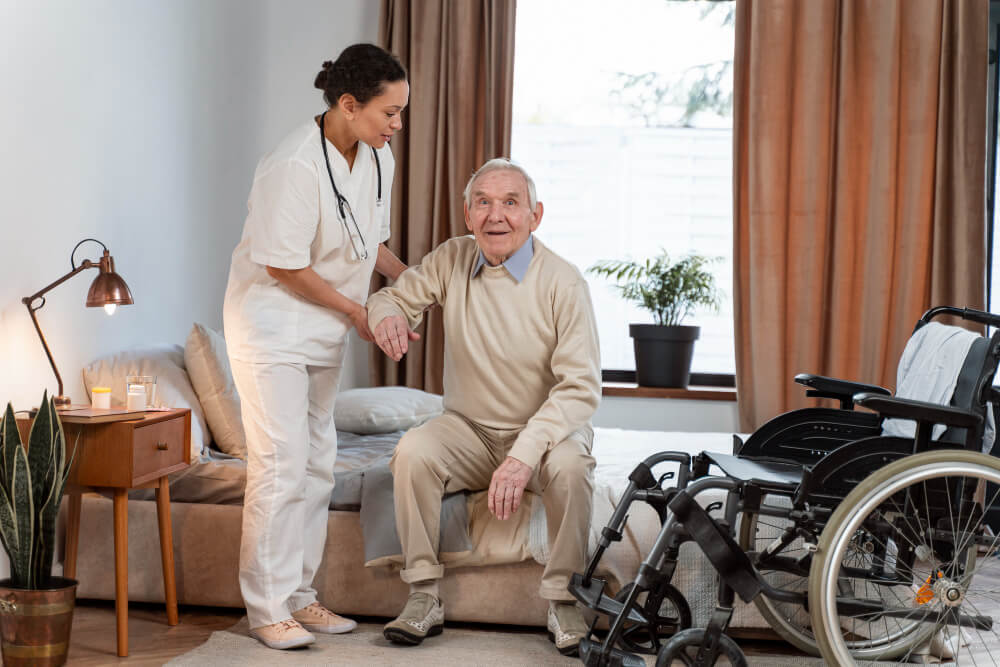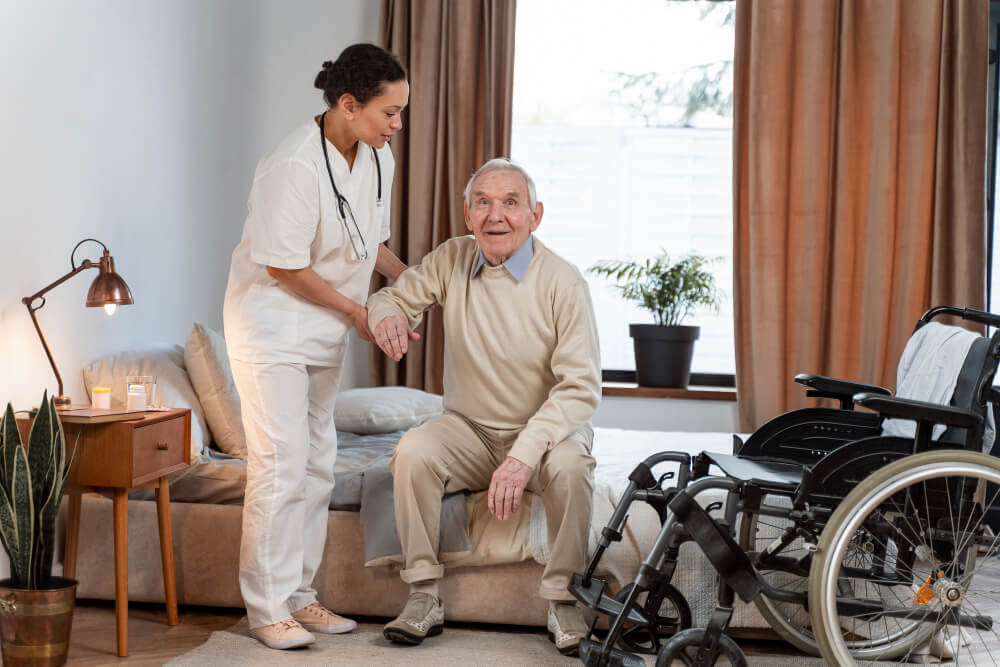Geriatric Care: A Focus on Physical Health
Geriatric care is a specialized field of medicine that focuses on the healthcare needs of older adults. Physical health is a crucial component of overall well-being, and geriatric care plays a vital role in addressing the unique physical health challenges faced by older adults.
Why is Physical Health Important in Geriatric Care?
Maintaining physical health in older adults is not only about prolonging life but also about enhancing its quality. Physical health directly influences emotional, social, and cognitive well-being.
Common Physical Health Concerns in Older Adults
As people age, they may experience a decline in physical function and an increased risk of various health conditions. Some common physical health concerns in older adults include:
Cardiovascular Disease
Heart disease is a leading cause of death among older adults. Risk factors include high blood pressure, high cholesterol, smoking, and diabetes.
Arthritis
Arthritis is a degenerative joint disease that causes pain, stiffness, and inflammation in the joints. Osteoarthritis and rheumatoid arthritis are two common types of arthritis that affect older adults.
Osteoporosis
Osteoporosis is a condition that weakens bones, making them more susceptible to fractures. It is particularly common in postmenopausal women.
Falls and Injuries
Falls are a major concern for older adults, as they can lead to serious injuries, such as hip fractures.
Vision and Hearing Loss
Age-related vision and hearing loss can significantly impact quality of life and independence.
The Role of Geriatric Care in Maintaining Physical Health

Geriatric care providers play a crucial role in maintaining the physical health of older adults. They can:
- Conduct Comprehensive Physical Examinations: Regular check-ups can help identify potential health problems early on.
- Manage Chronic Conditions: Effective management of chronic conditions, such as diabetes, heart disease, and arthritis, can help prevent complications and improve quality of life.
- Promote Healthy Lifestyle Habits: Encouraging regular exercise, a balanced diet, and adequate sleep can help maintain physical health.
- Prevent Falls: Implementing fall prevention strategies, such as home safety assessments and exercise programs, can reduce the risk of falls.
- Address Vision and Hearing Loss: Providing appropriate assistive devices and referrals to specialists can help manage vision and hearing impairments.
- Promote Independence: Encouraging physical activity and independence can help older adults maintain their quality of life.
Impact of Neglecting Physical Health
- Increased Dependency: Poor physical health can lead to a loss of independence, necessitating full-time caregiving.
- Higher Healthcare Costs: Chronic illnesses and complications from neglecting physical health can lead to expensive hospital stays and treatments.
- Reduced Quality of Life: Pain, discomfort, and immobility severely impact the mental and emotional state of older adults.
Strategies for Maintaining Physical Health in Older Adults
Regular Physical Activity
Engaging in appropriate exercise routines improves muscle strength, balance, and cardiovascular health. Recommended activities include:
- Walking: A low-impact exercise suitable for most older adults.
- Strength Training: Helps combat muscle loss associated with aging.
- Yoga or Tai Chi: Enhances flexibility, balance, and mental relaxation.
Nutritional Interventions
- Balanced Diet: Prioritize foods rich in calcium, vitamin D, protein, and fiber.
- Hydration: Encourage regular water intake to prevent dehydration.
- Supplements: When necessary, add vitamin B12, calcium, or omega-3 supplements under a doctor’s guidance.
Routine Health Screenings
- Blood Pressure and Diabetes Checks: Early detection can prevent complications.
- Bone Density Tests: Crucial for diagnosing osteoporosis.
- Vision and Hearing Tests: Ensure sensory impairments are addressed promptly.
Medication Management
- Maintain a list of all prescribed medications.
- Regularly review medications with a healthcare provider to prevent adverse effects.
- Simplify medication schedules with pill organizers.
Prevention of Falls
- Home Modifications: Install grab bars, improve lighting, and remove tripping hazards.
- Proper Footwear: Use non-slip, supportive shoes.
- Balance Exercises: Activities like Tai Chi can significantly reduce fall risks.
The Future of Geriatric Care
As the population ages, there is a growing need for high-quality geriatric care. Advancements in technology and medicine are leading to innovative approaches to maintaining physical health in older adults. Some emerging trends in geriatric care include:
- Telehealth: Remote monitoring and virtual consultations to improve access to care.
- Wearable Technology: Devices to track health metrics and provide real-time data.
- Personalized Medicine: Tailored treatment plans based on individual genetic and clinical factors.
- Robotics and Assistive Technology: Devices to assist with daily living activities and improve mobility.
By embracing these advancements, geriatric care can continue to improve the quality of life for older adults and help them age gracefully.
Conclusion
Geriatric care for physical health is a multifaceted discipline requiring coordinated efforts from caregivers, healthcare professionals, and communities. By prioritizing preventive measures, timely interventions, and a holistic approach, older adults can lead healthier, more fulfilling lives.
Contact our clinic’s Geriatric care options for effective physical health management (469) 200-5974 Or visit us https://scclittleelm.com/

